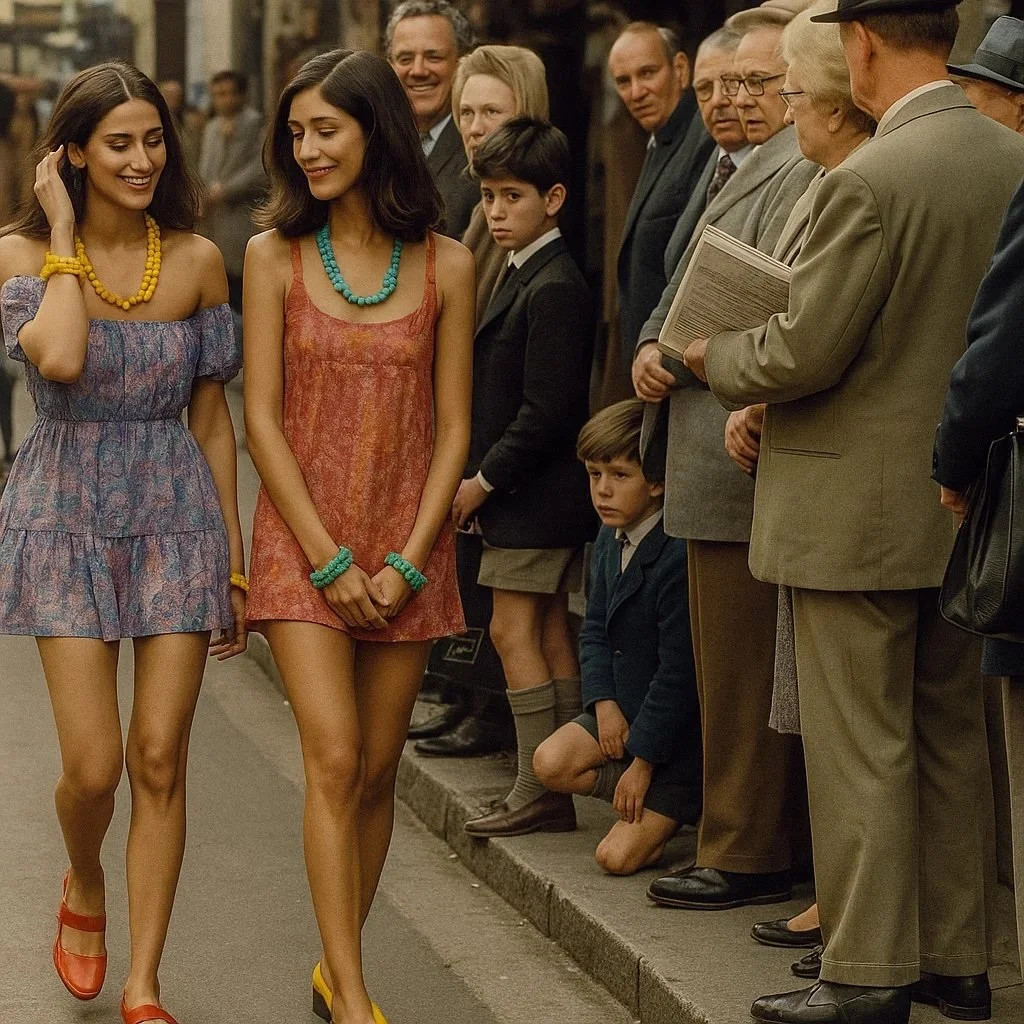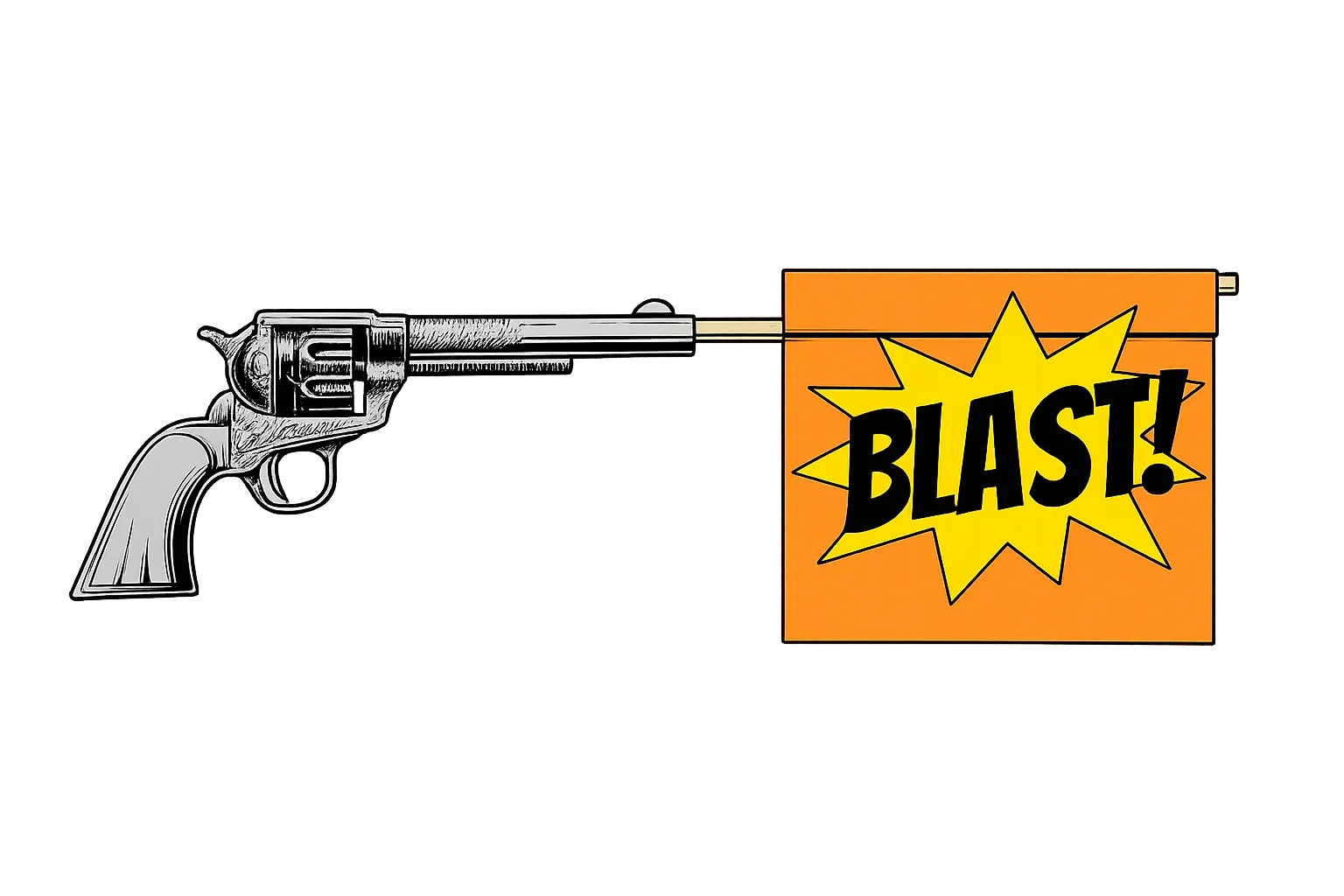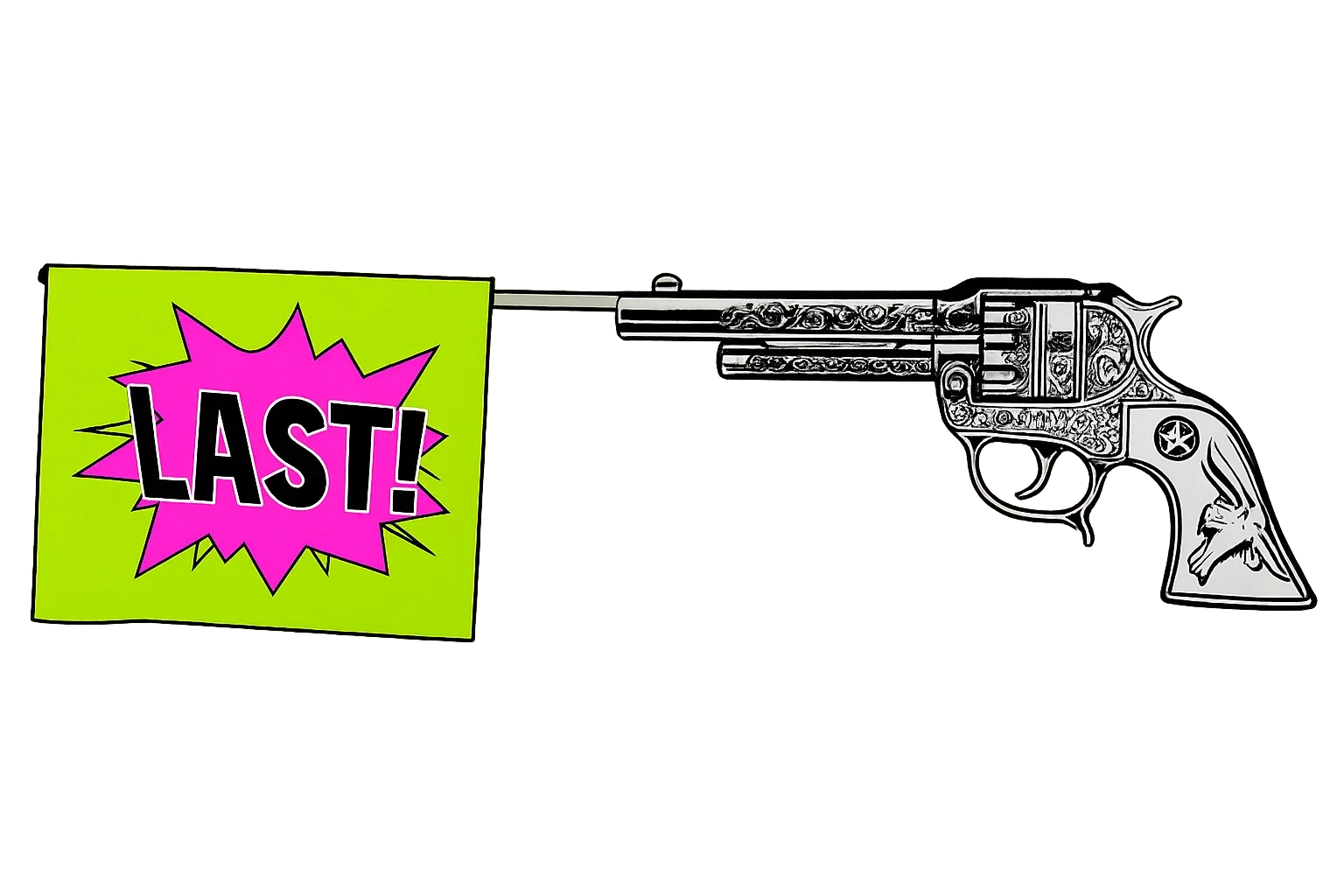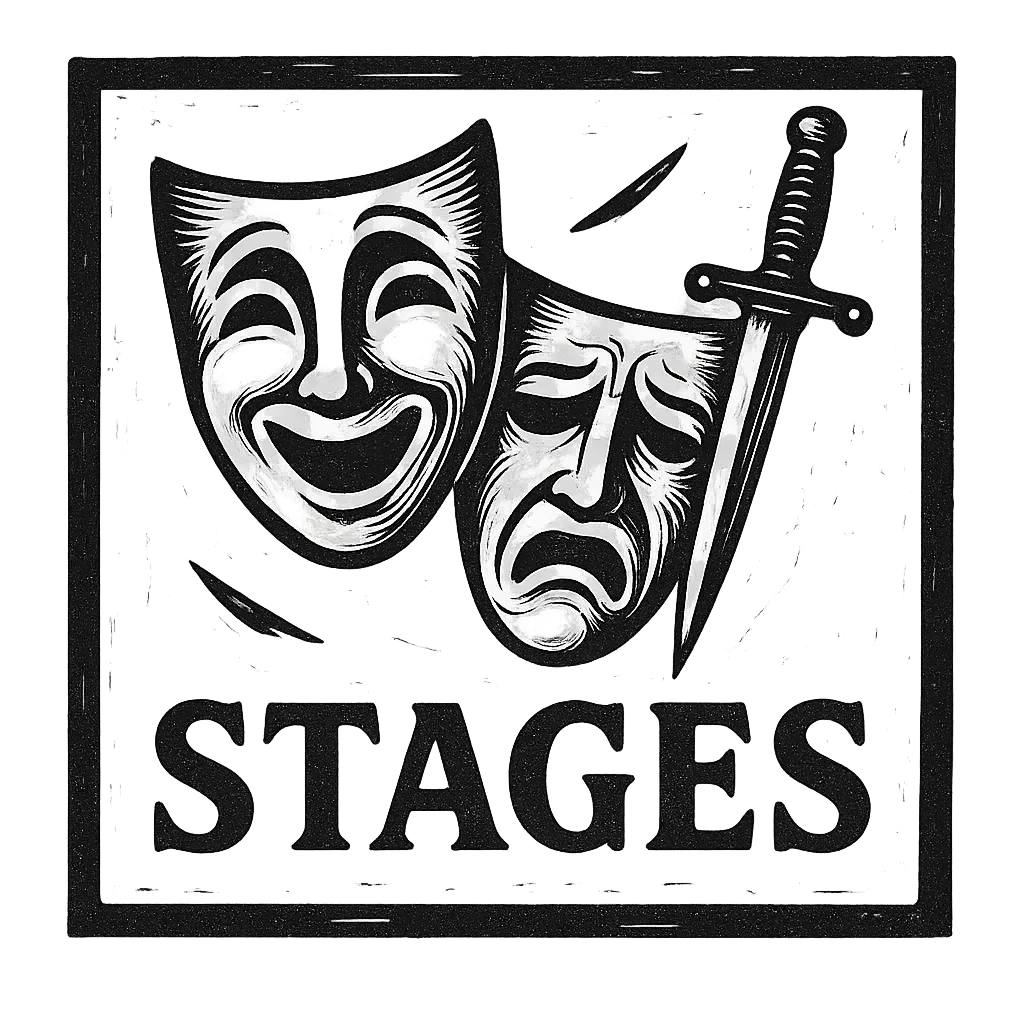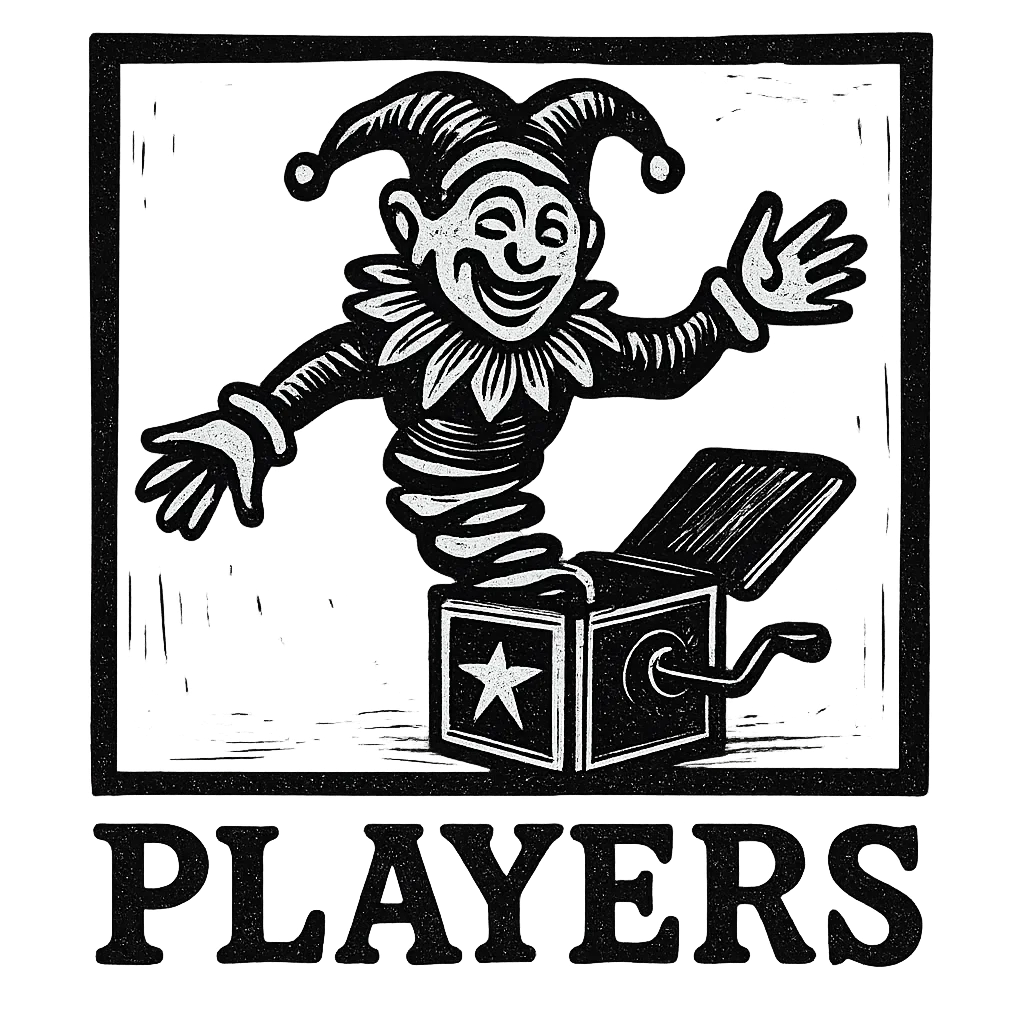§ The Stardust Sisters Journals §
1965 - 1967
Between 1965 and 1967, The Get Quick launched two chaotic attempts to conquer America—wedged between an impulsive, patchwork recording frenzy and a globe-spanning “world tour” stitched together with duct tape and divine madness. Timelines blur. Gigs vanish. Sessions bleed into séances.
This is the diary of Anemone Bliss—a teenage devotee turned globe-trotting groupie—who, along with her cousin Claire, decided to follow the band across continents and consciousness. Recently enriched by an inheritance from their late uncle (a minor duke with major eccentricities), the girls vowed to spend a healthy part of their newfound fortune on the most euphoric, extravagant, reality-bending summer imaginable. And then they just... kept going.
T H E S T A R D U S T J O U R N A L S
by Anemone Bliss (and Claire, sometimes)
April 3 – London, Moonrise over Shepherd’s Bush
We saw them again—first time since that Hammersmith Odeon gig in November (Claire swore Mitch winked at her during “Phantom Eye Love,” but he might’ve just been battling a contact lens). This was the warm-up for their so-called “world tour,” and it felt like standing on the edge of something holy and hysterical. Coco wore gold lamé hotpants and a hat made of crushed peacock dreams. Erik was levitating, or maybe just swaying, and Mitch had a brand-new tattoo he wouldn’t explain—some symbol that looked like a maze inside a sun.
So we decided, just like that, to follow them.
We sold Claire’s brother’s scooter and most of our proper shoes. Here we go!
June 14 – Marrakesh, Morocco
Oh the colors! We think the band came here to meet a mystic, but mostly they stayed in this little rooftop place where the wind sings lullabies and someone (maybe Erik?) scattered mandrake roots in every corner. We never saw them during the day, but at night we followed the scents of clove smoke and patchouli, and once—once!—we watched Coco and Mitch rehearsing some new tune on a broken harmonium and a goat-skin drum. They didn’t speak, just stared at each other like mirrors in a thunderstorm.
Claire swears S True Smith bribed the local police to keep the real fans out, but we are the real ones. I’ve painted Erik’s initials on the inside of my eyelids.
November 2 – Kyoto, Japan
The Get Quick played a secret gig in a Noh theater. We only got in because Claire pretended to be a duchess from Monaco and I cried a little. The performance was pure incense and unspoken secrets—half the audience wept, the other half folded origami bones. Mitch sang through a megaphone filled with rose quartz. Coco didn’t play a single note—just walked slowly across the stage in a kimono stitched with calligraphy spells. Erik stood in the rafters the whole time, cloaked like a raven priest. The show ended with no applause.
Just silence, like everyone forgot what sound was.
Claire says this was the night “the real tour” began.
May 1 – Rio de Janeiro, Brazil
It’s all melting—sunlight, velvet, logic. The band was supposed to play a festival, but it got cancelled or inverted or eaten. Instead, there was a boat party that lasted three days, somewhere off the coast. Claire and I got in by pretending we were sea nymphs hired for moral support. Coco read tarot with sugar packets, Mitch blessed everyone’s foreheads with guava juice, and Erik—he spoke to me. I don’t remember what he said. But when I looked in the mirror the next morning, my eyes had changed color. They looked like his.
Later that night, S True gave us a ride on the back of a dune buggy filled with snakeskin jackets and unread telegrams. He told us the tour was shifting planes.
November 2 – Kyoto, Japan (continued)
Erik… oh gods, Erik. He had a candle balanced on the headstock of his guitar, and when he played, the flame leaned toward him. He sang only one line the whole night, and it echoed in the hush like a bell dipped in honey:
“We were all born in the mirror.”
We didn’t understand, but we understood. The next morning Claire shaved a spiral into the back of her head and I wrote poetry in plum ink on every inch of my thighs. The hotel manager asked us to leave.
March 21 – Goa, India
Spring equinox. The Get Quick arrived barefoot, bleary-eyed, sun-blasted. Erik’s curls had gone serpentine. Coco seemed to glide over the sand instead of walking. They stayed in a painted villa said to have once housed Aleister Crowley, or a Portuguese duchess, or both.
We camped nearby in a hut made from driftwood and prayer flags. At night the band held “sessions” behind curtained lantern-light—long spirals of sound, tape loops, Erik’s voice modulated to a heartbeat, then reversed. We pressed our ears to the floorboards and heard a new language being born.
“The body is an echo,” Mitch told us one morning, passing by with a bowl of starfruit and no shirt.
“What does it echo?” Claire asked.
“Ask your skin,” he said, and disappeared into a cloud of clove smoke.
August 4 – Reykjavik, Iceland
The cold was brutal, but the sky made up for it. We wore reindeer coats over kaftans, and Claire started seeing auras around everything, even snowflakes. The band played inside a glacial cave—seriously, a cave—with heated cables and microphones frozen into icicles. The sound was like lightning under ice. They debuted a new song called “Null City”, and afterward, Coco fainted. The echo didn’t stop for three days.
Locals whispered about the Low End Doctrine, which Claire insists is a secret tuning system that only works during magnetic flux. S True Smith wouldn’t confirm, but he handed us both little matchbooks with coordinates scrawled inside. When we decoded them, they pointed back to Shepherd’s Bush. What does it mean? We don’t know yet.
But we will.
October 31 – Oaxaca, Mexico
The Day of the Dead. We were invited—not officially, but ritually.
S True sent us a telegram with no words, just a sigil drawn in what might’ve been blood and the coordinates of an old convent turned theatre.
The band didn’t perform that night. Not in the traditional sense. Instead, we were ushered room to room through veils of marigolds and mirrors. Mitch recited something from The Emerald Glossolalia. Coco played a harp made of hummingbird bones. And Erik…
Erik was there and wasn’t, flickering in candlelight, playing a reel-to-reel guitar type thing that seemed to slow down time.
Claire disappeared during the procession. I found her sandals the next morning, beside a burning piano in the courtyard. I think she chose to stay inside the echo.
“You can’t follow them forever,” said a man in a mask shaped like a television set. “Eventually, they fold back into the static they came from.”
I went home after that. I still have glitter in my lungs and my dreams smell like mango smoke and feedback. But sometimes, if I walk past a club just as the power cuts out, I swear I can still hear them. Just beyond the scary silence.
October 31 – Mexico City
Halloween. Day of the Dead. Coco wore a dress made of marigolds and bones. Mitch had painted half his face to look like a jaguar skull. Erik? He had no face at all—just a veil of mirror glass. When he played, people fell to their knees like they’d seen a god shattered into pieces.
Claire met a boy who said he used to be one of their roadies. He told her The Get Quick never traveled by plane—only by train, or boat, or doorways. She asked what kind of doorways. He just grinned and walked into a wall.
November 9 – Marrakesh, Morocco
We lost three days in the souk—Claire says it was the hashish, but I think it was Erik’s new chant, the one he sang in a whisper that made pigeons lift from the rooftops in strange geometric formations. They played a courtyard party for some minor royal cousin who had diamonds sewn into the lining of his robe and kept calling Coco a prophetess.
That night, Mitch told a story about a lizard who dreamed the universe, and when I asked what it meant, he kissed my forehead and said:
“We all sleep inside someone else’s lyric.”
I wrote that on a tile and buried it under a lemon tree.
December 31 – Buenos Aires, Argentina
New Year’s Eve. The gig was secret, underground—literally. In a ballroom below an old opera house, lined with mirrors and honeycombed by whispers. The band wore masks: Coco as a velvet deer, Erik in golden bandages, Mitch in something that blinked. No one played a note until midnight.
When the hour struck, they opened with “The Weather Machine”—Claire sobbed from the first chord. The rhythm section made the chandeliers tremble. Everyone in the room was suddenly barefoot.
“I saw the future on Coco’s shoulder,” Claire whispered to me later, “like a tiny mechanical parrot, whispering code.”
February 14 – Prague, Czechoslovakia
Valentine’s Day in a haunted city. We lit red candles in the snow and followed the sound of Erik’s harmonium through crooked alleys. The concert was held in an abandoned puppet theatre. All the marionettes had been dressed like the band. No one admitted to setting it up.
The show ended when a pulley snapped and a puppet of Mitch hung limp from the rafters—then the real Mitch stepped forward and whispered, “That’s not me yet.” Chills down my spine.
That night, Claire kissed me. I think it was for love, but it might’ve been to stop me crying.
April 4 – Istanbul, Turkey
Our clothes are threadbare, but the sky is silk. The Get Quick are more like a traveling religious circus. People don’t clap at the end of shows—they bow. Erik hasn’t spoken in two weeks, only hummed. Coco painted her eyelids gold and claims to have glimpsed “the edge of every song.”
Mitch read us poetry from a small green notebook. One line echoed in me like a second heartbeat:
“When the rhythm dies, the dream survives it.”
Claire thinks they’re winding down, but I don’t believe it. Not yet. Not while the moon still winks in rhythm. Not while I still find rose petals in my hair every morning, no matter where we sleep.
June 1 – Kathmandu, Nepal
We ascended into the clouds on the back of a rented Land Rover and four nubs of something S True called “peacock toes.” The Get Quick performed at dawn in a valley where the air seemed to hum.
Mitch played a flute he’d carved from a root. Coco sang in a language that may have been birdsong. Erik just stared into the mist like he was waiting for a transmission.
“Sometimes it feels we’re just recording the dreams of the planet,” Claire said, tracing spirals in the frost on the window. “But I know that’s only a dream.”
After the gig, we all laid on yak blankets and let the sun unspool us. Someone said they saw Colonel Boran on a ridge, watching with opera glasses. I hope he doesn’t find what he’s looking for.
Because I’m sure he’ll kill it.
July 7 – Osaka, Japan
Everything is too real here. The vending machines blink like oracles, and Claire won’t stop laughing at the billboards. The show was held in a decommissioned warship docked near the bay, its ballroom festooned with plastic flowers and paper cranes.
They played “Chromatose” for nearly forty minutes, Erik bent over his guitar like he was fighting a demon. Mitch’s eyes rolled back in his head. Coco vanished mid-song, only to reappear behind the crowd, dancing in a ring of red umbrellas.
I had a nosebleed from the sheer pressure of the sound.
“Tokyo is a magnet,” said S True. “But Osaka is a mirror. Don’t stay too long.”
August 8 – Sydney, Australia
The radio keeps mispronouncing their names. Coco’s become “Miss Lebray,” Mitch is “Mic Joy,” and Erik… well, Erik isn’t mentioned at all.
The gig was half beach bonfire, half cult initiation. We painted our bodies in phosphorescent ink and sang “Tongue Weather” until the tide came in and took the amps. Claire swam out after them. Came back with a jellyfish tattoo across her hip and said she’d seen the Low End Doctrine written in the coral on the ocean floor.
I think Mitch might be trying to break the band up. Claire thinks Erik’s already gone.
September 3 – San Francisco, USA
Claire stayed in Australia. Said she had to “plant seeds.” I flew alone.
The American shows feel different—more frantic, more electric, less sacred. Erik’s missing entirely. His parts are filled by feedback loops and whispered tape recordings. Coco wears all white and doesn’t look at the crowd. Mitch sings in tongues and knocks over mic stands.
They played Golden Gate Park and no one could remember how they got there. Time stutters around them.
“This isn’t the end,” I overheard S True murmur backstage. “It’s just the ripple before the breach.”
I want to believe him. But I’ve started dreaming about rooms without doors.
September 3 – San Francisco, USA
We arrived in the fog. Everything here smells like patchouli and burnt circuitry. The Get Quick played an unscheduled show in an abandoned observatory in the hills, no tickets, no posters—just word-of-mouth and a thousand barefoot mystics with blown-out pupils.
Mitch spoke in reversed syllables all night. Coco played what she called “anti-chords”—frequencies that rattled your teeth but didn’t seem to exist when you tried to hum them later. Erik danced with a live raven on his shoulder, chanting something that turned the air around him blue.
Claire sat beside me and whispered, “They’re not really here anymore, you know. Look at them. They’re just the shadows the music leaves behind.”
I told her she was scaring me. She said I’d been scared since Vienna.
July 21 – Santa Fe, New Mexico
Claire met a boy with eyes like turquoise and a soul patch carved by angels. His name was Cypress (probably not birth-given) and he lived in a dome house made of old bottles and quartz. He didn’t believe in shoes or calendars. We stayed five days, or maybe ten.
They had a commune called The Sugar Root Fellowship, where everyone painted dreams on each other’s backs with aloe and ochre, and once a day they all climbed into a clawfoot tub and screamed until their voices cracked like amethysts. I got nervous around Day 3 and tried to leave, but Claire said, “This is healing,” so I made a daisy crown and pretended.
On the last night, we danced in the dry riverbed under a blood moon while Cypress played sitar with his feet. Claire kissed me and said, “If we never find the band again, this was still worth it.”
We found the band again in Mexico. But Cypress sent her a poem by hawk feather.
August 13, 1966 – Tangier, Morocco
I joined a theater troupe by accident. They thought I was the niece of some avant-garde poetess (thank you, Claire, for making me wear that antique veil). They performed a play called The Cities Between Mirrors, with no script, no language, and no beginning. I played “the girl who might be real.” I didn’t speak, just sat on a velvet swing and wept black ink.
One night a man in silver goggles offered me a small crystal cube and whispered, “This will let you remember the part of your life you’ve forgotten.” I swallowed it. For two days I thought I was a radio antenna lost in a forest of radio antennas.
Claire came to get me wearing a baboon mask and told the director I was needed for “royal business.” We took a boat to Cadiz the next morning. I still hum melodies I heard in that theater.
January – Paris, France
We weren’t supposed to be here. But Claire had a pen-pal from her Mod days, a girl named Claudine who lived above a bakery and claimed she once gave David Hemmings a black eye at a wrap party. We stayed for two weeks. Ate nothing but espresso and cigarettes and once a slice of quince tart that made me believe in reincarnation.
Claudine introduced us to a man named Lucien who made kinetic sculptures from discarded typewriters. He said the machines still held “ghost language” in their springs. One night, he placed my hand on a letter key and said, “Think of a moment you regret.” I did, and the machine typed a love letter to no one.
When we left, Claudine gave us matching scarves and Lucien gave us a small box. Inside was a tiny gear labeled “Tomorrow.” We wear it as a charm now.
April 26 – Madurai, India
We took a wrong train. Or a right one, depending on how you define destiny. Ended up far from the coast, in a town full of temples and turmeric air. A woman with lotus eyes invited us to a night festival—candles floated on the river, and children painted each other's feet with henna. Claire danced with a goat. I drank something that tasted like starlight filtered through mango.
In the morning, we found a tiny shop where an old man played a shruti box and said he remembered “the humming ones,” and when I asked if he meant The Get Quick, he just nodded and tapped his third eye.
We never found the band there. But something changed. The wind started to sound like Erik’s guitar.
February 4 – Vienna, Austria
We came for a film festival. We stayed for something else entirely.
Vienna in winter is powdered sugar and bone. The city is dripping in chandeliers and menace. Claire and I wore velvet coats over kaftans and pretended to be heiresses from “the island of Sapphira,” which no one questioned. The Get Quick were nowhere near—off in Peru or Peru-like, we think—but there was a screening of The Hypnagogic Railway (starring Coco’s alleged half-sister), so naturally we had to go.
The film was silent and played backwards. At the end, the projectionist applauded himself, lit a clove cigarette, and invited Claire to a “private salon” he said met under the Natural History Museum. I tagged along but only got as far as the foyer before being politely redirected toward a stack of surrealist pamphlets and a tray of rhubarb schnapps.
Claire vanished behind a velvet curtain. I read about twelve pamphlets, each more cryptic than the last. One of them had a diagram of a human ear shaped like a cathedral. Another simply said:
“ALL ART IS A CODE. ALL CODE IS A DOOR. WHOSE SIDE ARE YOU ON?”
When Claire returned she was wearing gloves she didn’t arrive in and speaking German with a weird accent she definitely didn’t know. She handed me a matchbox with no matches, just a slip of paper inside that read:
“YOU HAVE BEEN SELECTED. REPORT TO THE KUGELHOF.”
We left immediately.
The next day we tried to find the projectionist—gone. The salon? No address. The gloves? Missing from her bag. I tried asking Claire what happened, but she only said, “They knew my name before I said it. And not Claire. The other one.”
We don’t talk about Vienna now. But sometimes, when a certain kind of static hum hits the air, Claire hums a little song that’s not on any album by The Get Quick—but it must be.
February 5 – Vienna, Austria
Claire said she’d only go for an hour. She kissed my cheek and told me to "guard the earthbound frequencies." Then she was gone again, strange new gloves on like a duchess of secrets.
She didn’t come back that night.
At first I thought she was with some beautiful jazz drummer named Anton or Klaus or something. But the morning came, and no Claire. I wandered the old quarter in a fog of espresso and dread, asking around in broken German and mascara-tears. No one had seen a girl in midnight velvet with peacock gloves.
Then, at noon, a mime handed me a rose dipped in ink. No explanation. Inside the petals was a folded card:
“CLAIRE IS SAFE. THE TRIAL HAS BEGUN.”
What trial?
I found her that evening at the Zentralfriedhof cemetery, standing in front of Beethoven’s grave with a paper crown and no shoes. Her eyes were smeared with gold pigment and she was whispering what I think were coordinates. I wrapped her in my coat and asked what happened.
“I passed the first three tests,” she said, eyes glassy. “The fourth is silence. If I speak of it, I fail. But I can hum.”
She hummed. It sounded like Xtian Haight’s harmonium run through a broken oscillator.
Later, when we were safe-ish in our room, she told me a few things. Just enough.
The salon wasn’t just a club. It was part of an underground network of artistic saboteurs—The Bureau of Untranslated Desires. They infiltrate film festivals, fashion houses, and poetry readings. They believe the Cold War is just a distraction from the real conflict: Who controls the metaphors.
Claire said she was given a codename—Baroness of the Blur—and tasked with learning a poem that could unlock a hidden radio station beneath the Belvedere Palace. She recited it once in her sleep:
“When the owl eats time And the violin forgets, The paint will peel truth From the shadows of jests.”
I wrote it down. She doesn’t remember it.
The gloves? A transmitter. The crown? A symbol of temporary rank. The trial? Allegedly involved translating a Dadaist manifesto by dancing it.
I asked if she wanted to go back. She shook her head and cried glitter.
We left Vienna that night. Took the train to Trieste with a stranger who said he once built an accordion for S True Smith. Claire slept with her hand over her heart like something fragile was trying to get out.
December 30 – Buenos Aires, Argentina
We were lounging in a smoky café called La Boca Negra, two nights before New Year’s Eve, where the espresso tastes like arguments and every waiter is a part-time sculptor. Claire was sketching a pair of abstract wings on a napkin and humming something I couldn’t place. Something circular. Something... encrypted.
That’s when a man with a phonograph tattooed on his throat approached us. He didn’t ask if we were Claire and Anemone. He just placed a sugar bowl on our table and walked away.
Inside the sugar bowl? A folded program from a ballet that never existed:
“Oneironauts in Vermillion: An Intermission in Twelve Steps”
Below the title, scrawled in pale ink:
“The Baroness of the Blur is requested at Midnight. Wear black lace and forget your name.”
There was also a cassette tape. No label. No case. Claire held it like a relic. Her hands were shaking.
I asked if she was okay. She said, “I think I’m being re-activated.”
Then she smiled like it wasn’t a smile at all.
That night, she vanished again. I stayed at the hotel, pretending to sleep but really writing poems to the moon and waiting for a sign. She returned just before dawn with smudged eyeliner and a new ring on her thumb: a tiny silver phonograph needle.
She wouldn’t tell me what happened. But she did say this:
“There’s a tango club beneath the old train station. They play no music. You have to feel the rhythm by memory. Inside, they store art that hasn’t been made yet. One of Coco’s dresses was there—in blue—and the song Mitch will write next summer? Already echoing.”
She looked both euphoric and ruined. She said she had danced blindfolded with a man who may have been the same mime from Vienna.
She said the Bureau is planning “an interruption.”
She said The Get Quick are being watched—not just by fans, but by metaphysicians who think Mitch might be a vector for sonic insurgency.
Then she fell asleep whispering, “Translation is treason.”
February 18 – Athens, Greece
We were crashing in the attic of a bookstore where you could pay for poetry with kisses or cigarettes. Claire was feverish with some mystic flu she caught in Istanbul, so I was alone when it hit the radio. A pirate station, no call sign, just static and this song.
But it wasn’t on any album I knew. Mitch’s voice came through like it was being filtered through lace and fire:
“The orbit breaks / The vowel falls / The corridor unfolds / Beneath the music halls.”
The melody spiraled like a Möbius strip of déjà vu. Coco’s harmonies weren’t harmonies—they were tones that slid sideways, like silk being pulled through a needle backwards. I dropped the tea I was holding. It felt like the room was tilting.
I recorded it on cassette and played it for Claire. She sat up and muttered, “That’s it. That’s the one. That’s the Broadcast Song.”
I asked what she meant.
She told me everything she’d been holding in since Buenos Aires.
According to Claire, the Bureau of Untranslated Desires had been working for years to sneak an encrypted poetic virus into the mass culture signal. They tried with books, films, sculptures that caused migraines. But the best medium—the one with the right frequency bandwidth—was pop music.
Mitch had been contacted in 1963. No one knows how. Maybe he dreamt them. Maybe he was always one of them. Either way, he wrote a song under hypnosis, then forgot writing it. The Get Quick recorded it in a studio in Rome, where the tape reels were partially submerged in red wine. Erik insisted on adding backward flute.
The song was titled “Cipher Dancer.”
It was never officially released. But somehow—it began to appear. Tucked between commercials, played once at dawn, hidden on the B-side of jukebox 45s labeled wrong.
People who heard it sometimes woke up speaking dead languages. A nun in Naples reportedly translated it into stained glass. A mathematician in Oslo saw it in his coffee grounds and solved an equation he hadn’t even begun to address yet.
The Bureau considers this a success. “Phase Echo.”
Claire says there are three more songs like it scattered across the tour tapes.
One is hidden inside a false live recording from Buenos Aires.
One is embedded in a thirty-second silence on The Commonplace Pleasure Cruise.
The last… she doesn’t know. Only that it “isn’t a sound—it’s a shape.”
And once it’s played… we won’t be able to go back.
April 5 – Istanbul, Turkey
There was a fog over the Bosphorus that tasted like nutmeg and old secrets. Claire had been quiet since Athens. Not sad, just listening—to street musicians, to whispers in rugs, to the metal snap of tea spoons in tulip glasses. She said the city had “echo tendrils.” I didn’t ask.
The Get Quick were due to play in a converted hamam lit by colored glass and candles floating in oil. But the day before the show, Claire received a postcard slid under our hostel door. No address. No stamp. Just a red symbol on the front—like an open eye inside a phonograph horn. On the back, written in Coco’s unmistakable violet ink:
“The Baroness of the Blur will report to The Fourth Minaret before dusk. Bring the cassette. Wear no color. Trust the mirror.”
Claire said nothing. She folded the card three times and tucked it into her boot. Then she took my hand and said, “Don’t follow. But remember where the shadows fall.” And just like that, she was gone.
That night, she returned in silence, her pupils wide and shimmering with... something. I made her tea. She didn’t speak until the moon was directly overhead. Then she whispered:
“Coco is not Coco anymore. She’s the Archive.”
The Fourth Minaret wasn’t a tower—it was a metaphor. A passage beneath the Galata district where pigeons roosted on abandoned pianos. Claire was led by a child wearing a blindfold and a feather crown. He asked her riddles in Morse code. She answered with fragments of Cipher Dancer.
Down below, there was a chamber of voices—recordings of every performance from the tour, stitched together into one continuous, melting concert. Coco waited in the center, seated on a throne of broken tambourines and reel-to-reels. She was silent, eyes gold, hands stained with ink and henna.
Claire offered the cassette. The one from Buenos Aires. The Archive sniffed it like a rose.
Then she asked Claire a question:
“If a message becomes beautiful, does it lose its urgency?”
Claire replied with a line I didn’t understand:
“Only if the bloom forgets the root.”
That was the test.
The Archive smiled—truly smiled—and placed a pendant around Claire’s neck. It wasn’t jewelry. It was a sliver of acetate etched with unreadable grooves.
“You are no longer the Baroness,” the Archive said. “Now, you are the Disruptor.”
Claire doesn’t remember what happened next. Only that she woke up on a ferry, the cassette gone, the pendant warm against her chest.
The show the next night was indescribable. Mitch played a version of “Tongue Weather” that turned inside out mid-bridge. Erik didn’t appear, but his guitar track played by itself. Coco never touched an instrument—just danced in a circle of incense and projector light, mouthing something only Claire seemed to recognize.
Afterward, Claire whispered to me:
“There’s only one song left. The Shape. The one that ends the frequency war.”
I asked when it would come.
She looked toward the Golden Horn, where the moon was dipping below the skyline like a vinyl record disappearing into its sleeve.
“Soon,” she said. “And we won’t know it’s begun until we can’t hear anything else.”

